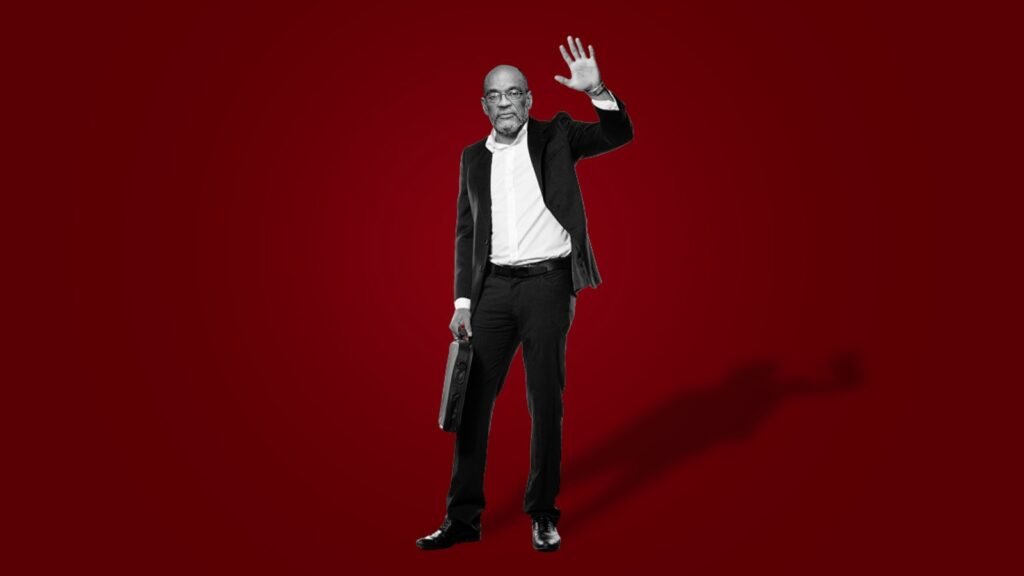Haiti’s prime minister agreed late Monday to step aside amid escalating chaos caused by armed gangs, accepting a regional push for a transition that paves the way for international intervention.
Ariel Henry’s resignation was secured by Caribbean nations at an emergency meeting in Jamaica. US Secretary of State Antony Blinken offered an additional $100 million to support the transition, which will include a security force led by Kenya.
Armed gangs have seized control of large parts of Haiti, exacerbating an already dire situation in the Western Hemisphere’s poorest country. Recent weeks have seen a surge in violence, with bodies littering the streets, armed bandits looting vital infrastructure, and concerns mounting over a potential famine.
“The government I lead cannot remain indifferent to this crisis,” Henry stated in his resignation address posted online. “As I have always maintained, no sacrifice is too great for our homeland, Haiti.”
Gang leaders had demanded the departure of Henry, who, despite portraying himself as a transitional figure, had remained in power since 2021 following the assassination of Haiti’s president. Haiti has not held an election since 2016.
Guyana’s President Irfaan Ali, who chairs the Caribbean regional body CARICOM, announced after a weekend of diplomacy that Henry would step down once a new transitional authority is established.
Ali praised Henry, acknowledging that the prime minister, who was stranded in Puerto Rico due to Haiti’s main airport being non-functional, had demonstrated through his actions and words a selfless commitment to Haiti’s success.
“And that selfless commitment was to ensure Haiti’s success,” Ali remarked.
Blinken, who participated in the talks for seven hours at a Kingston hotel, confirmed Henry’s resignation in a phone call initiated by Barbados Prime Minister Mia Mottley. A US official accompanying Blinken stated that Henry had agreed to step down on Friday but was awaiting the Kingston conference to finalize details of the transition.
During the discussions, measures to prevent reprisals against Henry and his associates were also addressed. The United States offered assurance that the outgoing prime minister would be welcomed to remain on US soil if he felt unsafe in Haiti, the official added.
Senior officials from Brazil, Canada, France, and Mexico also participated in the talks. CARICOM, in a joint statement with its partners and the United Nations, outlined that Haiti’s new Transitional Presidential Council would consist of seven voting members who would make decisions by majority vote.
These seven members will include representatives from major political parties, the private sector, and the Montana Group, a civil society coalition that had proposed an interim government following President Jovenel Moise’s assassination in 2021. Additionally, the council will have two non-voting seats – one for civil society and another for the church.
Authority in Haiti has significantly deteriorated, with a nighttime curfew extended until Thursday, although the overstretched police force is unlikely to effectively enforce it. Jamaican Prime Minister Andrew Holness, hosting the crisis talks, cautioned that Haiti was on the brink of full-scale civil conflict. He emphasized the need for resolute action to counter the pervasive lawlessness and despair before it’s too late.
In a bid to bolster security efforts, Blinken announced an additional $100 million in support for an international stabilization force, bringing the total US pledge to $300 million since the crisis escalated several years ago. Blinken also offered an extra $33 million in immediate humanitarian aid.
Addressing the escalating violence, Blinken stressed the urgency of action on both political and security fronts, acknowledging the intolerable conditions facing the Haitian people. While affirming the principle of Haitian self-determination, Blinken asserted that external assistance could help restore fundamental security and alleviate the immense suffering endured by Haiti.
President Joe Biden, who concluded the US military involvement in Afghanistan, has firmly rejected the idea of deploying troops to Haiti, a country that the United States occupied for nearly two decades almost a century ago and has intermittently intervened in since then.
Initially, attention shifted towards Canada, but it too deemed a mission in Haiti too perilous with uncertain prospects of success. Nonetheless, Canada has pledged $91 million in assistance for Haiti, with Prime Minister Justin Trudeau committing to ongoing support as he addressed the Kingston summit remotely.
Kenya initially offered to assist but faced setbacks when a domestic court ruled against the deployment. However, momentum resumed after Henry’s visit to Nairobi, where an agreement for a “reciprocal” exchange of forces between the two countries was reached. However, amid escalating violence, Henry found himself unable to return to Haiti, landing instead in Puerto Rico after the Dominican Republic declined to host him.


